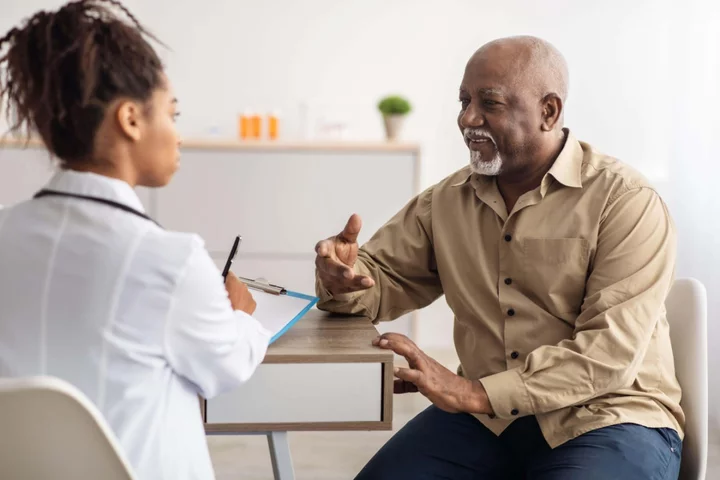
Project launched to bust myth that cancer is a ‘white person’s disease’
More must be done to get black, Asian and ethnic minority people to participate in breast cancer trials, experts have said, as they warned that people from these backgrounds have been under-represented in previous studies. Medics said that they want research into the disease to be “relevant to people we see in the clinic”. Experts said that there is a “broad misperception” that black women “don’t suffer as much from breast cancer” which can result in the perception that “cancer is a white person’s disease”. If I hadn’t gone on the trial at The Christie, I wouldn’t be here today Jasmin David This is despite the fact that previous studies have found that black women are more likely to die from breast cancer compared to their white peers. They are also more likely to develop more aggressive cancer and be diagnosed when their cancer is at a more advanced stage. It comes as the NHS Race and Health Observatory launched a new campaign alongside Macmillan Cancer Support to improve diversity in breast cancer clinical trials. The project, which is being supported by Roche, aims to raise awareness of the lack of diversity in clinical studies, improve communications and provide longer term support to patients. Specialist nurses will be provided at two major cancer hubs – Bart’s Health NHS Trust in London and The Christie NHS Foundation Trust in Manchester – to help guide patients through the process. Men, who account for 1% of breast cancer patients in the UK, are also being included. The NHS Race and Health Observatory said that there are “multiple barriers” around the recruitment, communication and retention of black, Asian and ethnic minority patients in clinical trials. It said that data show that people from an ethnic minority background are poorly under-represented in many clinical trials. And the Caribbean African Health Network said that there has been a “disengagement” in research “as a result of mistrust”. Jasmin David, a 53-year-old breast cancer patient from Fallowfield in south Manchester, took part in a clinical trial which saved her life and is encouraging others to do the same. Two years after her initial diagnosis and treatment at The Christie she was told that the cancer had come back and had spread to her lungs, lymph nodes and chest bone. The mother-of-two was told she had less than a year to live but was also offered the opportunity to take part in a clinical trial at the National Institute for Health and Care Research Manchester Clinical Research Facility. Ms David is now cancer-free. “If I hadn’t gone on the trial at The Christie, I wouldn’t be here today,” she said. “I have two children and now I get to be there for them as they grow up. “Research gave me a second chance and life and I’m relishing every second of it. “I want everyone, no matter their ethnicity, to have equal access to clinical trials, so I’m glad that this important piece of work is being done. I hope that by sharing my story I can inspire more women like me to come forward and take part in clinical trials.” Dr Habib Naqvi, chief executive of the NHS Race and Health Observatory, said: “We are pleased to announce this partnership and our joint commitment to ensuring inclusion and representation in future breast cancer trials. “We believe that when targeted, culturally sensitive interventions and communications are put in place, under-represented groups can be successfully recruited into clinical trials.” He added: “There is a broad misperception that black women don’t suffer as much from breast cancer or it does not run in their family history. This can result in the perception that cancer is a white person’s disease. “We want this pilot to encourage women at risk, those already diagnosed and individuals undergoing post treatment to come forward and share their experiences and get the information needed.” Professor Richard Simcock, chief medical officer at Macmillan Cancer Support, added: “As a Breast Cancer Oncologist I want to know that research is relevant to the people we see in clinic. Historically that has not been the case. “I’m delighted that Macmillan can support this project to ensure that future evidence from clinical trials is representative and inclusive.” Charles Kwaku-Odoi, chief executive of the Caribbean African Health Network, said: “Across the black community there is an undoubted legacy of disengagement in research and most certainly clinical trials that stems back decades as a result of mistrust. “This has not served us well because it leads to a lack of appropriate interventions that perpetuate the grave health inequalities in breast cancer care. “This partnership approach to build solutions to improve engagement in clinical trials in breast cancer treatment and care is very much welcomed. We are looking forward to working in a collaborative way to build trust, improve awareness and ensure that barriers surrounding access to clinical trials are addressed.” Read More Charity boss speaks out over ‘traumatic’ encounter with royal aide Ukraine war’s heaviest fight rages in east - follow live 10 slick ways to kit out your student digs 4 essential officecore trends to update your work wardrobe Sickle Cell Awareness Month: What is sickle cell disease and how do you know if you have it?
1970-01-01 08:00
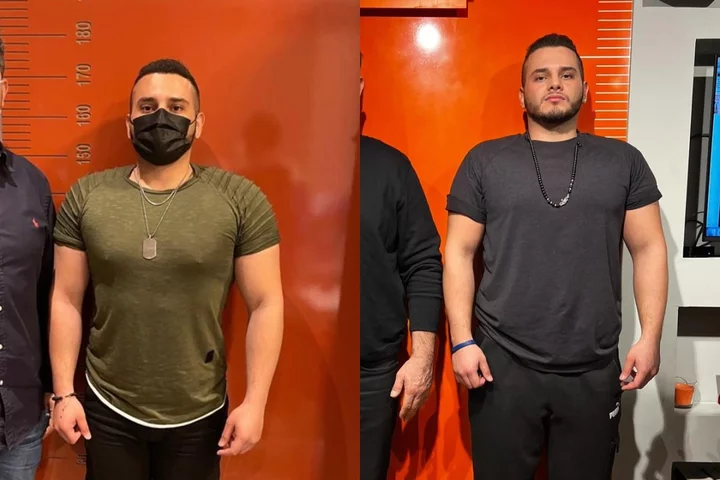
Man who lengthened his limbs by three inches feels ‘so much happier’
A Canadian man has had limb-lengthening surgery, costing £25,000, to increase his height from 5ft 7in to 5ft 10in as he was so insecure about his height it caused him to have “suicidal thoughts”, and claims he is now “so much happier” and “confident”. Daniel Farbod, 27, a civil engineer, from Toronto, Canada, has been self-conscious of his height “all (his) life” – when he stopped growing, at age 14, he said it felt “tragic” and like his “first stab to the heart.” Daniel always defined “being masculine” as being tall, and was “ashamed” of himself as he “didn’t feel like a man.” Over time, being taller was all Daniel could dream about, and claimed his height “impacted his mental health so badly” that he was having “suicidal thoughts”. After coming across the unique surgery online, he realised he was “willing to sacrifice time and money to get (his) life back.” So, in May 2021, he had his first procedure in a specialist clinic in Turkey, which involved breaking his femurs, hollowing out the bone, and putting a rod inside the bone with external fixators, pieces of steel on the outside of his legs. Daniel had to turn the fixators with an Allen key every day for over four months, and eventually had his second surgery to remove the fixators after his bones had successfully fused together. When Daniel recovered, he could not “put into words how happy (he) was” and “felt so much more confident”, now, he is sharing his journey on social media to inspire others who are insecure about their height. Daniel told PA Real Life: “I’m really proud of myself for having the surgery. “I was insecure all my life about my height, it impacted my mental health so badly. “I was suicidal, and after admitting that I wanted to take the steps to feel better, and have the surgery, I feel so much better. “I think for other people, it is important to know how tough the surgery and recovery is – it was the hardest thing I’ve ever done, but for me, it changed my life and made me grow not only literally but also metaphorically as a person.” Daniel, who has always been self-conscious about his height, stopped growing at age 14, and became obsessed with finding ways to become taller. He said: “I researched everything from socks and supplements that claimed to increase your height. “I was always insecure and worried about it – I used to go to orthopaedic doctors because I was so scared of not growing. “But when I got to age 14, I stopped and it was so depressing.” When it became clear to Daniel that he was unlikely to grow any more, it took a toll on his mental health and confidence. He explained: “It was so tragic for me, it was like my first stab to the heart. “All my dreams would be about being taller and I had to somehow accept that my height had peaked. “I tried to keep myself busy to manage my thoughts but in 2020 I just couldn’t handle it – I had all of these negative thoughts and suicidal thoughts because I think being masculine, and being a man, means to be tall. “I didn’t feel like a man, I was so ashamed.” Daniel felt as though having limb-lengthening surgery was the only way he was going to feel better, but his parents, who are both “on the shorter side”, did not approve of his decision to have cosmetic surgery. He said: “Everyone was really against the idea because they thought it was not natural and it was changing the way your body is meant to be. “I knew the surgery was going to be tough, but I thought even that pain would be better than having suicidal thoughts. “I was willing to sacrifice time and money to get my life back.” In May 2021, Daniel had his first surgery in a specialist clinic, Live Life Taller, in Turkey, which involved breaking both of his femurs, hollowing out the bone, and putting a rod inside the bone with external fixators – pieces of steel on the outside of his legs. He explained: “I was really scared when I got to the clinic, and the breaking of the bones was the part I was most nervous about in the whole process. “It was crazy to wake up after the surgery – the reality just hit me all at once and I was so happy.” His recovery involved being in a wheelchair and using an Allen key to turn a bolt on the fixators four times a day at 90 degrees to separate the bone segments a little at a time. Daniel continued to do this every day for four and a half months, saying of his painful recovery: “My skin was stretching, my muscles were growing, it was madness. “It took me even longer to recover, they usually say it will take three months, but, my I had nerve issues with my right leg and had to have it broken again. “It was a very tough time.” In September 2021, the external fixators were removed, he explained: “I used a walker and really really slowly I worked up to using crutches. “I couldn’t really tell how tall I was at that point. “It took me at least another three months to be able to stand up.” Mr Farbod went from 5 ft 7 to 5ft 10 and thinks his mental health has dramatically improved as a result. He said: “I couldn’t believe it. I had been dreaming of being a tall man since I was 10 years old, it’s all I’ve ever wanted. “I went through all these sleepless nights, trauma and upset, and I finally achieved my goal. “I can’t even put into words how happy I was, and still am – I felt so much more confident.” When Mr Farbod arrived home, his family were also very happy for him. He said: “They looked after me so much – I could barely get out of bed or bend down for a long time. “They could tell I was so much happier when I recovered.” Now, Daniel shares his journey on Instagram and YouTube to inspire others who are insecure about their height. He said: “I want to show people the reality of the surgery – it’s tough but I want to raise awareness and get men talking about their insecurities.” For support, contact the Samaritans on 116 123, email them at jo@samaritans.org, or visit samaritans.org to find your nearest branch. Read More Charity boss speaks out over ‘traumatic’ encounter with royal aide Ukraine war’s heaviest fight rages in east - follow live 10 slick ways to kit out your student digs 4 essential officecore trends to update your work wardrobe Sickle Cell Awareness Month: What is sickle cell disease and how do you know if you have it?
1970-01-01 08:00
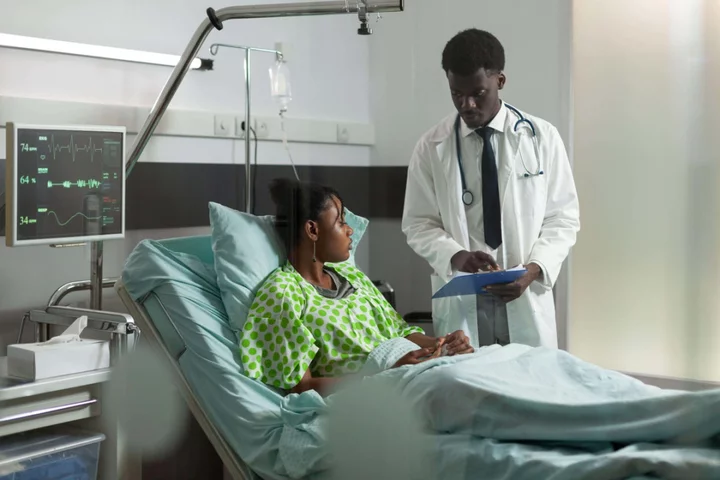
Sickle Cell Awareness Month: What is sickle cell disease and how do you know if you have it?
Almost 300 babies are born in the UK with sickle cells every year, according to the Sickle Cell Society, and the effects of sickle cell disease are believed to impact thousands. Yet, many people may not even know what sickle cells are or what living with the condition means. What is sickle cell disease? In most people, red blood cells are disc shaped and move easily through the blood vessels. But if you have sickle cell disease, your red blood cells are shaped like a sickle (similar to a crescent moon). This stops them moving with ease through the body and blood flow becomes restricted. Sickle cell disease isn’t actually one specific disease – it refers to a group of conditions affecting people with sickle cells, which range in severity.The conditions are inherited and predominantly affect people from African and Caribbean family backgrounds. What are the symptoms of sickle cell disease? Symptoms begin early in childhood and can sometimes be debilitating. How each individual is affected may vary, but the main symptoms are anaemia, an increased risk of infections, and pain. This includes extremely painful episodes called ‘sickle cell crisis’, which happens when blood flow to certain parts of the body become blocked. According to the NHS, these episodes can last for days and require hospitalisation. Other issues are associated with the condition too, including problems with the lungs, delayed growth in childhood, higher risk of stroke, leg ulcers and sight/vision problems.How is it diagnosed? Sickle cell disease is usually picked up during pregnancy or shortly after birth, although a blood test can be given at any time to see if someone has the condition or carries sickle cell genes. In parts of the country, pregnant people will be offered a test to see what the chances are of their child having sickle cells. Infants can be checked for the cells through a heel prick test.How do you treat it? Treating sickle cell disease is usually a lifelong process to help people with pain and to stay as healthy as possible. Treatment takes place in specific sickle cell centres and those living with it are encouraged to take care of their health, no matter the severity of their symptoms. Managing pain is a huge part of treating sickle cell disease. Staying hydrated can be helpful, as well as avoiding sudden temperature changes, like getting into a cold shower or diving into water. According to the NHS, Hydroxycarbamide (hydroxyurea) may be recommended, which is taken as a pill once a day. This can lower the quantity of other blood cells and requires careful monitoring, however. Some people may also be able to have a medicine called crizanlizumab, either on its own or alongside hydroxycarbamide, usually injected into a vein every four weeks. To prevent infections, many people with sickle cell disease will take daily antibiotics. Read More Charity boss speaks out over ‘traumatic’ encounter with royal aide Ukraine war’s heaviest fight rages in east - follow live TikTok has gone wild for adult gymnastics – here’s what you should know Man explains why he swapped veganism for raw meat diet: ‘I feel great’ Rugby star Ugo Monye: Boarding school shaped my career and my personality
1970-01-01 08:00

Country Garden: Debt crisis-hit China property giant in record loss
Country Garden reported a record $6.7bn loss for the first six months of the year.
1970-01-01 08:00
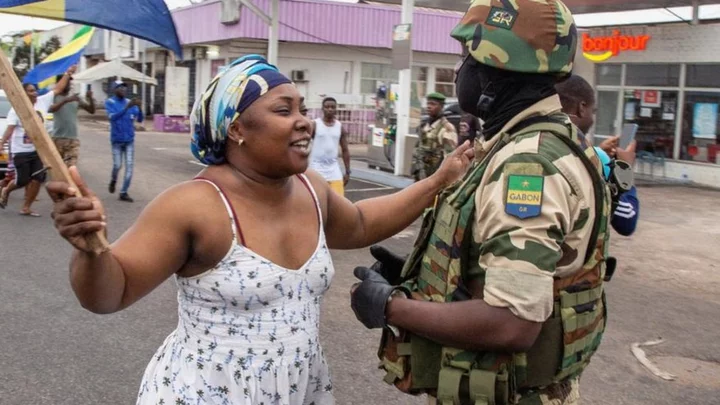
Gabon coup: Why military takeovers are all the rage
Gabon is the latest African state to be hit by a coup, raising fears about the future of democracy.
1970-01-01 08:00
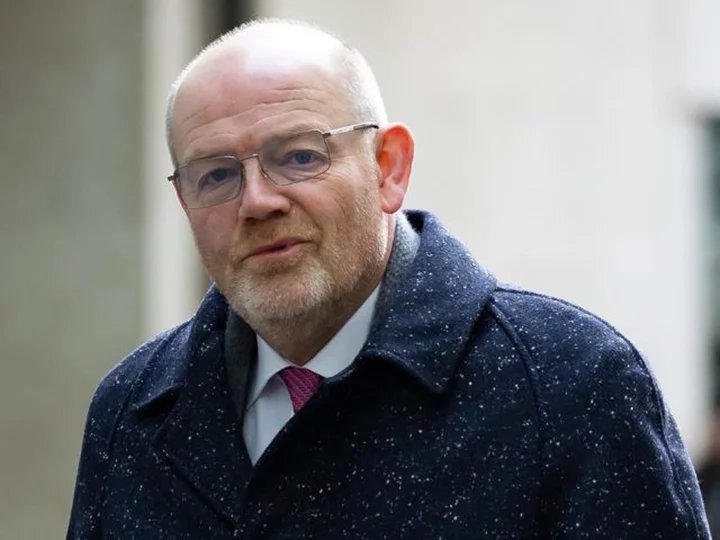
CNN's new chief faces a crucial test on several fronts that will define the network's future
It's official: Mark Thompson, the former chief executive of The New York Times and director-general of the BBC, will be the next leader of CNN, taking the reins of the renowned global news organization at one of the most pivotal times in its 43-year history.
1970-01-01 08:00

Nick Saban reveals the one thing he wants to see from Alabama in MTSU opener
What is Nick Saban exactly looking for from Alabama in their first game? There's one particular thing he wants to see against Middle Tennessee.
1970-01-01 08:00

New York says Trump should be found liable for fraud, even before a trial
By Jonathan Stempel NEW YORK New York's attorney general on Wednesday asked a state judge to declare, even
1970-01-01 08:00

What Map is Sunset Replacing in Valorant?
The return of Breeze and the addition of Sunset to the Valorant competitive rotation are replacing Fracture and Pearl in Valorant Epsiode 7 Act 2.
1970-01-01 08:00

New York AG's office alleges Trump inflated his net worth by as much as $2.2 billion in 1 year
Donald Trump inflated his net worth by as much as $2.2 billion in one year, lawyers for the New York attorney general's office alleged as part of their civil fraud lawsuit against the former president, his adult sons and the Trump Organization.
1970-01-01 08:00

Judge knocks out key defense for former Trump adviser Navarro ahead of contempt of Congress trial
Former Trump White House adviser Peter Navarro will not be able to argue before a jury at his contempt of Congress trial next week that the former president asserted privilege to shield him from a House January 6 committee subpoena, a federal judge ruled Wednesday.
1970-01-01 08:00

NBA insider names 3 dark-horse trade suitors for Giannis Antetokounmpo
Giannis Antetokounmpo says he isn't ready to sign an extension with the Milwaukee Bucks. That means some unlikely landing spots could enter the mix.
1970-01-01 08:00
